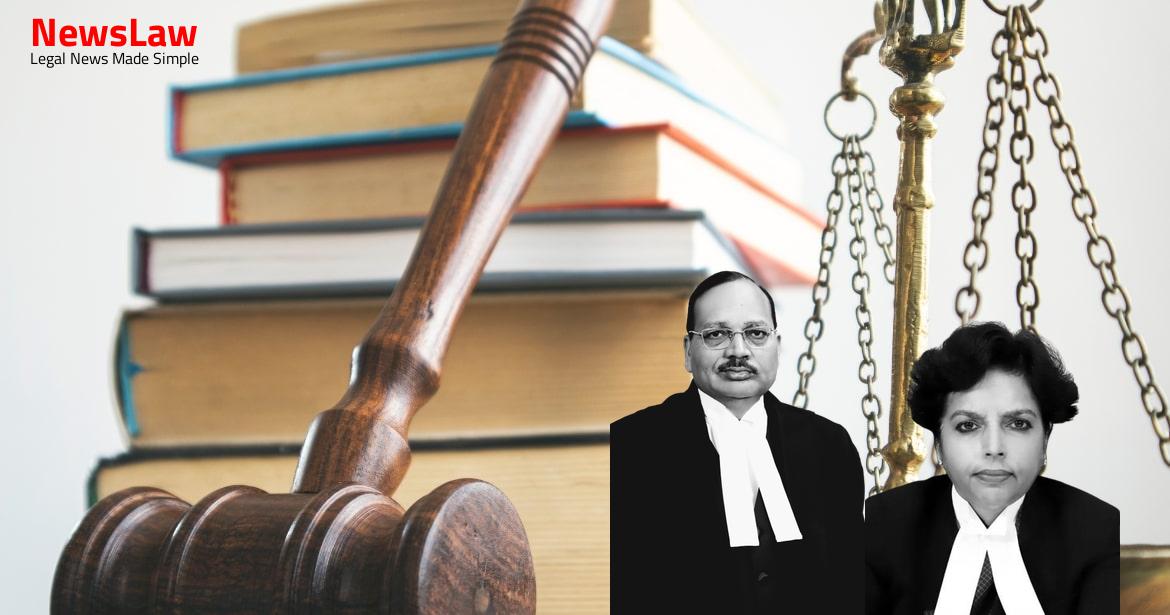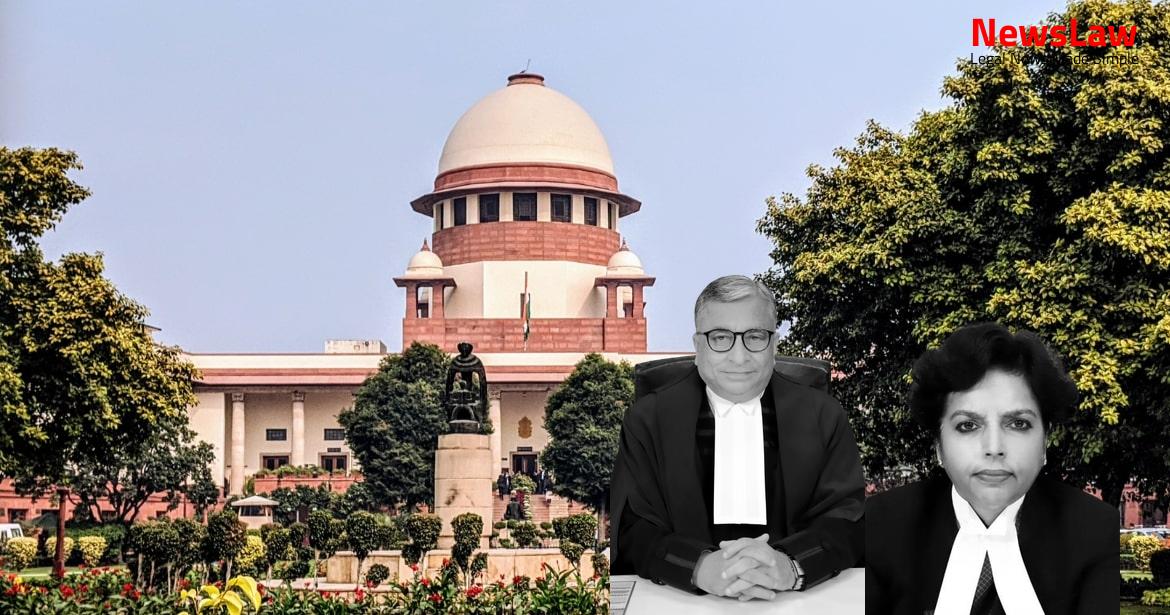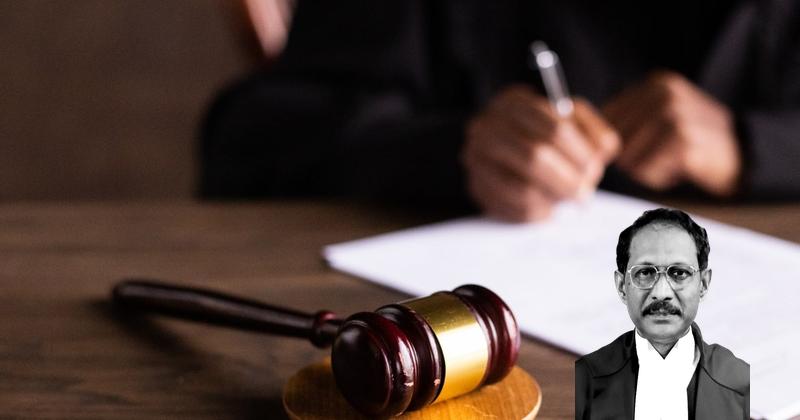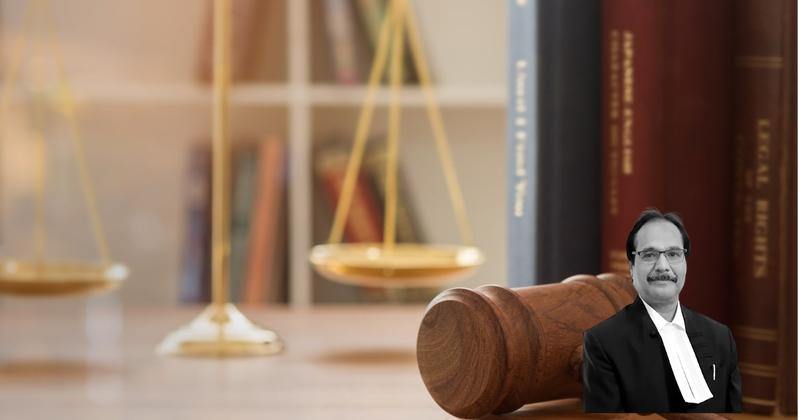Delve into the detailed legal examination of quashing criminal proceedings based on a compromise between parties. The focus lies on the court’s analysis of its powers under Section 482 Cr.P.C. amidst the presence of a settlement. Understanding the nuances of the court’s assessment provides valuable insights into the complexities of legal proceedings.
Facts
- The Appellants are seeking compounding of the offences and consequential acquittal based on a compromise with the Complainant.
- The allegations state that the Appellants, along with other accused family members, were aggrieved by information the Complainant shared with Forest Department officials.
- These Criminal Appeals, No 1489 of 2012 and No 1488 of 2012, involve different incidents but share a common legal question, hence proposed to be decided together.
- The compromise between the parties was not presented in the Trial Court or High Court.
- Appellants challenged their conviction in the High Court of Karnataka, resulting in a sentence of two years simple imprisonment under Section 326 IPC.
- The prosecution version details how the Appellants abused and assaulted the Complainant due to a monetary dispute, resulting in severe injuries.
- During the pendency of the Appeal, a compromise was reached between the Appellants and the Complainant on 13 September 2006.
- The incident, originating from FIR No 24 of 1995, involves Appellant No.1 striking the Complainant with a pharsa leading to severe injuries.
- The Court maintained the conviction under Section 326 read with 34 IPC as it is non-compoundable.
- The learned Additional Sessions Judge reduced the sentence from three years to one year considering the settlement between the parties.
- The Appellants challenged their conviction and sentence before the High Court of Madhya Pradesh, seeking compounding of the offence under Section 326 IPC due to the compromise.
- The High Court acquitted Accused Nos. 5 & 7 for lack of evidence but maintained the conviction and sentence for the Appellants.
- The High Court reiterated that the offence is non-compoundable and hence, the plea for compounding was not acceded to.
- The Learned Sessions Judge compounded the offences under Sections 294 and 323 read with 34 IPC based on the settlement, acquitting the Appellants of the same.
- A two-Judge Bench of the Supreme Court granted leave to appeal and directed the appeals to be listed after the disposal of a reference case considering the issue of compounding non-compoundable offences.
- The Appellants seek the Court to invoke powers under Article 142 of the Constitution for complete justice.
- After a lengthy hearing, the High Court further reduced the duration of imprisonment already undergone by the Appellants.
- The Appellants were committed for trial under various sections of IPC and the Prevention of Atrocities Act, and were convicted under Sections 294, 323, and 326 read with 34 IPC.
Also Read: Analysis of Suppression of Information in Employment Selection: Legal Perspective
Arguments
- Learned Counsel for the Appellants and Complainant(s) heavily relied on the compromise/settlement between the parties to seek quashing of the criminal prosecution.
- The Learned State Counsel(s) opposed the quashing of criminal prosecution despite the compromise between the parties.
- No substantial question of law was asserted by the Learned State Counsel(s) regarding the compromise/settlement in these appeals.
- The powers exercisable by a High Court under Section 482 Cr.P.C. were under scrutiny in the context of the compromise/settlement between parties.
Also Read: Analysis of Cheating and Forgery in Passport Case
Analysis
- The High Court can quash criminal proceedings even for non-compoundable offences if parties settle their dispute and the victim consents.
- Punishment is not the only form of justice, and the court must consider the nature of the offence and the impact on the justice system.
- Inherent power under Section 482 Cr.P.C. has no statutory limitation and aims to secure the ends of justice or prevent abuse of court processes.
- High Court can use Section 482 Cr.P.C. to prevent abuse of court processes or to secure justice, even if offences are non-compoundable.
- Decisions to quash criminal proceedings depend on facts, nature of the crime, and equitable considerations.
- Cases involving private or non-heinous offences can be annulled even if trials are concluded or appeals are dismissed.
- For offences like those under the Prevention of Corruption Act, compromise cannot be a basis for quashing criminal proceedings.
- In matters of family disputes or civil transactions, criminal proceedings can be quashed if continuation would lead to oppression or injustice.
- High Court must assess if continuing a criminal case despite settlement would be unfair or an abuse of legal process.
- Article 142 grants courts different and superior powers than those under statutory laws like Section 320 or 482 Cr.P.C.
- Limitations in statutes do not restrict the constitutional powers under Article 142 unless they explicitly prohibit such powers.
- Offences with a serious impact on society are non-compoundable and cannot be treated as compoundable through judicial interpretation.
- Courts must not overstep legislative boundaries by modifying laws like Section 320 Cr.P.C. to include non-compoundable offences.
- Power under Section 482 can be used for non-compoundable offences of a civil nature arising from commercial transactions or family disputes when the parties have resolved the dispute
- Power should not be used for serious offences like murder, rape, dacoity which have a significant impact on society
- Power should not be used for offences under special statutes like Prevention of Corruption Act or offences by public servants
- High Court must consider accused’s antecedents and conduct before quashing criminal proceedings based on settlement between victim and offender
- Provisions in ordinary laws do not limit the powers of the apex Court under Article 142(1) of the Constitution.
- The expression ‘prohibition’ should be understood instead of ‘provision’ to convey the appropriate idea.
- Any prohibition should be based on underlying fundamental issues of public policy.
- Powers under Article 142 are not subject to express statutory prohibitions, as statutory provisions do not override a constitutional provision.
- The exercise of powers under Article 142 considers express prohibitions in substantive statutory provisions based on fundamental principles of public policy to regulate the exercise of power accordingly.
- The proposition relates to determining ‘complete justice’ of a cause or matter, not to the powers of the Court under Article 142.
- The plenary powers of the Court under Article 142 are complementary and not limited by specific statutes, existing independently to ensure complete justice between parties.
- The plenary jurisdiction of the Court under Article 142 cannot be restricted by ordinary statutory provisions.
- The Court can quash criminal proceedings under Article 142, even in the absence of an express provision like Section 482 Cr.P.C.
- The Court should carefully exercise wide-amplitude powers to quash criminal proceedings based on factors like nature of the offence, voluntary compromise, and conduct of accused persons.
- Serious offences with harmful effects on society or public policy should not be settled solely between individuals or groups through quashing process.
- In cases of heinous offences, no benefit should be extended to perpetrators.
- The High Court has inherent powers under Section 482 Cr.P.C. to compound non-compoundable offences.
- Parties willingly and voluntarily decided to settle their dispute without coercion.
- Nature of injuries and offenses do not exhibit mental depravity or serious nature warranting public interest.
- Occurrences in the cases happened in 2000 and 1995, with no untoward incidents post-settlement.
- Appellants and complainants reside in the same area, quashing proceedings will promote peace and harmony.
- Administration of criminal justice system will not be affected by accepting the settlement.
Also Read: Discrepancy in Date of Birth: Court’s Legal Analysis
Decision
- Appellants deemed to have been acquitted of the charged offences
- No formal settlement brought on record or clarified
- Compromise/settlement raised for the first time before the Court
- Both Appellants and complainant-victim directed to submit settlement in writing to C.J.M., Shimoga within three months
- C.J.M. to send a Report to the Court on the genuineness of the compromise
- If genuine settlement, appeal deemed disposed of in same terms as Criminal Appeal No. 1489 of 2012
- Appellants treated as acquitted in case of genuine settlement
- Appeal dismissed if no formal settlement is placed before C.J.M. or report reflects otherwise
Case Title: RAMGOPAL Vs. THE STATE OF MADHYA PRADESH (2021 INSC 568)
Case Number: Crl.A. No.-001489-001489 / 2012



